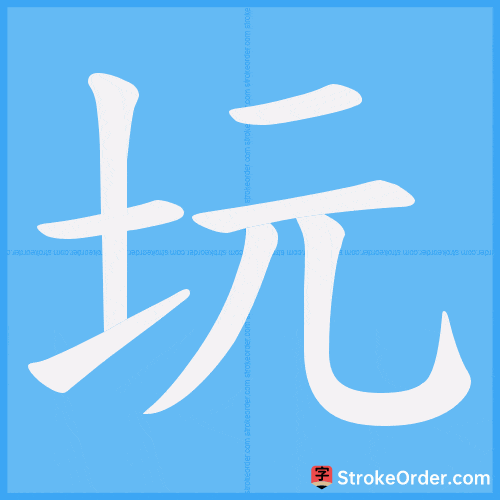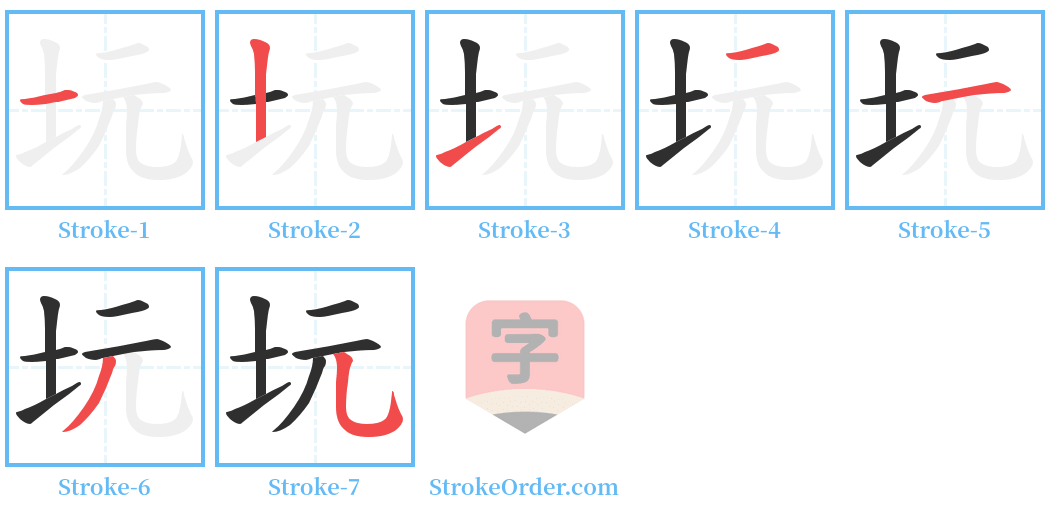坃 Stroke Order
Animated Stroke Order of 坃

Stroke Order Diagrams for 坃

Information of 坃
Pinyin
xūn
Radical
土
Strokes
7 strokes
Usage
★★
Definition
坃
1. Anciently the same as “埙” (xūn, a type of wind instrument).
2. (Noun) (Phonetic-ideographic character. The radical is 土, meaning "earth"; the phonetic is 熏, pronounced "xūn". The original meaning refers to an ancient wind instrument made from ceramic, shaped like a goose egg, with six holes and a mouthpiece on the top. Also called “陶埙” which specifically refers to a clay version.) It can also be made from stone, bone, or ivory.